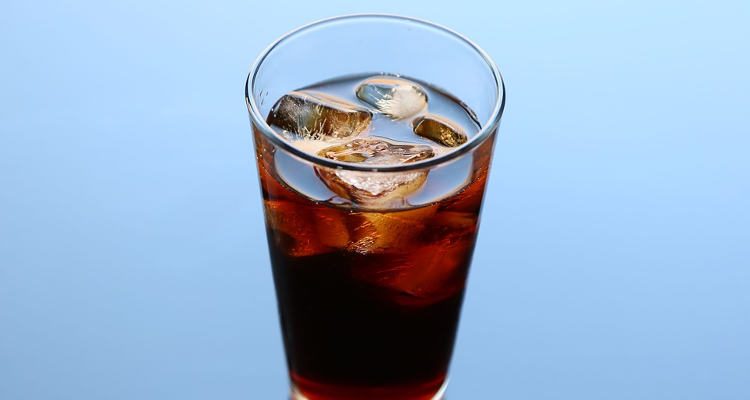
You know soda is bad for you (or, perhaps, horrible), but that doesn’t mean you want to stop drinking it, right? Well, a new report might give you reason to pause—and a reason to finally stop drinking soda: a chemical found in popular sodas like Pepsi and Coca-Cola, 4-methylimidazole, is being flagged as a carcinogen, according to Consumers Reports magazine.
According to the report, this chemical was linked to cancer in animal studies. In fact, the Consumer Reports magazine noted that a 12-ounce can of “Pepsi One” contained 43.5 micrograms of 4-methylimidazole while a can of “Malta Goya” contained 352.5 micrograms of the chemical.
In sodas, this chemical results as a byproduct of making artificial caramel coloring. And you can forget about manufacturers listing this chemical for what it is—instead, most brands will just say “caramel coloring” on their ingredient list, not giving you any indication of how much of this potentially cancer-causing chemical you’re ingesting.
This isn’t the first time that studies have found a link between popular sodas and cancer. In fact, the World Health Organization’s International Agency for Research on Cancer has said this chemical may cause cancer. So why aren’t they banned yet? Because, according to the U.S. Food and Drug Administration (FDA), us humans would have to drink approximately 1,000 cans of soda to reach those same levels that were found in the animal studies.
Does that mean there’s no cause for concern?
Not really. My friends and family, for example, drink a lot of soda. And although I never used to think it was such a big deal, I wouldn’t want them drinking anything that even has a minute possibility of causing cancer—would you?
That’s one of the reasons why this chemical, 4-methylimidazole, is actually listed as an official carcinogen in the state of California. There, foods or beverages must contain warning labels that consuming more than 29 micrograms of 4-methylimidazole per day is dangerous and potentially cancer-causing. It’s the reason why food manufacturers have actually limited the amount of this chemical in foods sold in California—but unfortunately, the same hasn’t occurred in other states and here in Canada.
“We are concerned about both the levels of 4-MeI we found in many of the soft drinks tested and the variations observed among brands, especially given the widespread consumption of these types of beverages,” said Dr. Urvashi Rangan, a Consumer Reports toxicologist, in a statement.
“There is no reason why consumers need to be exposed to this avoidable and unnecessary risk that can stem from coloring food and beverages brown.”
PepsiCo has recently announced that they have altered the amount of this chemical for products sold in California, and intend to make the same changes nation-wide by February 2014.
Despite the FDA’s reassurances, Dr. Richard Besser, chief health and medical editor of ABC News, says he does not recommend people drink soda. This just gives people another reason to steer clear from these unhealthy drinks, and if you’re craving a bubbly taste, try carbonated water instead, he said.
That’s definitely a suggestion I’m going to pass along to my loved ones.
Sources:
“Proposition 65,” Office of Environmental Health Hazard Assessment web site, January 7, 2011; http://oehha.ca.gov/prop65/prop65_list/010711list.html
“Pepsi One and Potential Cancer-Causing Chemical,” WebMD web site, January 24, 2014; http://www.webmd.com/news/20140124/cancer-chemical-pepsi-one













